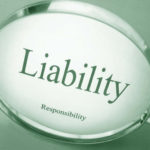Tag Archives: Knoxville Personal Injury Attorney

How Do I Prove a Slip-and-Fall Injury?
One of the most common types of personal injury claims is the “slip-and-fall” accident. These are actually known as premises liability claims. The basic idea is that a property owner can be held liable under Tennessee law if they fail to repair a known dangerous condition on the premises. For example, if the manager… Read More »

Tennessee Court Says School Officials Are Not “Insurers” of Student Safety
In a typical personal injury or premises liability case, a property owner can be held responsible for injuries caused to third parties due to negligence. Unfortunately, Tennessee courts tend to hold public schools to much lower standards. In fact, a school district may be absolved of any liability even when one student sexually assaults… Read More »

Can I Sue My Employer If I Am Exposed to Dangerous Chemicals at Work?
Many Tennessee workers are exposed to hazardous working conditions, such as toxic exposure to dangerous chemicals, and develop significant medical problems as a result. Such workers may be entitled to workers’ compensation or civil damages through a personal injury lawsuit. A key to collecting damages, however, is proving that an employee’s injuries were actually… Read More »
How Comparative Fault Affects Your Personal Injury Claim
Tennessee applies a comparative fault rule in personal injury cases. This means that if the plaintiff is “at least 50 percent” at fault for the underlying accident or injury, the defendant is not liable for any damages. Determining a plaintiff’s fault is therefore a key issue in many personal injury lawsuits. Cabin Owner May… Read More »
Can I Sue the City for Hazardous Conditions on Public Property?
When private property owners fail to correct a known dangerous or hazardous condition on their premises, they may be liable for any personal injury sustained by an innocent third party. A similar rule applies in Tennessee to property owned by state and local government agencies. While the government is normally immune from personal injury… Read More »
Can I Be Blamed for My Doctor’s Malpractice?
Comparative fault is a common defense raised in Tennessee personal injury lawsuits. Basically, the defendant claims the plaintiff’s actions somehow contributed to his or her injury. In a car accident lawsuit, for example, a defendant accused of negligent driving might argue the plaintiff was also negligent and therefore at least partially responsible for the… Read More »
Bringing a Wrongful Death Claim in Tennessee
There is no amount of money that can compensate for losing a child. But when a child dies due to a third party’s negligence, the parents have a legal right to seek justice. In Tennessee, as in most states, the most common venue for such justice comes in the form of a wrongful death… Read More »
Samsung Faces Recall, Possible Liability Over Exploding Phone Batteries
Any company that sells consumer products has a legal and ethical responsibility to ensure said products are safe. When a defect is discovered, a recall is usually the first step. But it is not the last. Recalling and replacing dangerous products after-the-fact do little for individuals who are injured prior to the defect’s discovery…. Read More »
Can My Employer Reassign Me to a Lower-Paying Job to Avoid Workers’ Compensation?
The Tennessee workers’ compensation system is designed to protect employees who are unable to return to work following an on-the-job injury. One way the law protects employees is by awarding higher benefits in cases where the injured employee does not have a “meaningful return to work” following an accident. A “meaningful” return means, among… Read More »
What If a Jury Finds I Am Partly to Blame for a Car Accident?
In a car accident lawsuit, the defendant will often try to place at least some of the blame on the plaintiff or victim. There is an important legal reason for doing this. Tennessee adheres to what is known as a “modified comparative fault” rule in negligence cases. This means that if the defendant can… Read More »











